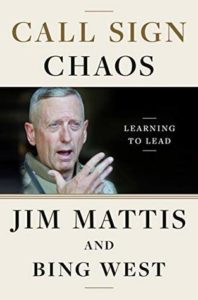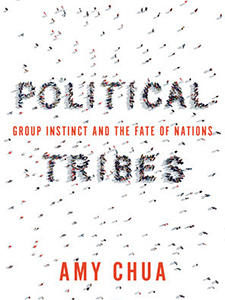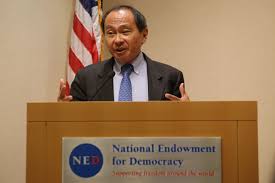 Democracy is an experiment—and one that can be reversed, argues Gen. jim Mattis, former secretary of defense. Tribalism must not be allowed to destroy our experiment, he writes for The Wall Street Journal:
Democracy is an experiment—and one that can be reversed, argues Gen. jim Mattis, former secretary of defense. Tribalism must not be allowed to destroy our experiment, he writes for The Wall Street Journal:
Unlike in the past, where we were unified and drew in allies, currently our own commons seems to be breaking apart. What concerns me most as a military man is not our external adversaries; it is our internal divisiveness. We are dividing into hostile tribes cheering against each other, fueled by emotion and a mutual disdain that jeopardizes our future, instead of rediscovering our common ground and finding solutions.
When it comes to the defense of our experiment in democracy and our way of life, ideology should have nothing to do with it, adds Mattis, in an essay adapted from his forthcoming book “Call Sign Chaos: Learning to Lead,” co-authored with Bing West.
 Tribalism has emerged with a vengeance as vote-seeking demagogues with few political credentials have swept to power in developing countries by tapping into deep-seated resentment toward a market-dominant minority, according to Yale University’s Amy Chua. In her book, Political Tribes: Group Instinct and the Fate of Nations, Chua contends that in many parts of the world, group identities that matter most – the ones that people will kill and die for — are ethnic, religious, sectarian, or clan-based.
Tribalism has emerged with a vengeance as vote-seeking demagogues with few political credentials have swept to power in developing countries by tapping into deep-seated resentment toward a market-dominant minority, according to Yale University’s Amy Chua. In her book, Political Tribes: Group Instinct and the Fate of Nations, Chua contends that in many parts of the world, group identities that matter most – the ones that people will kill and die for — are ethnic, religious, sectarian, or clan-based.
Partisan identity makes us more accepting of information that supports our beliefs and more critical of information that contradicts them, according to social psychologist Peter Ditto. In a recent meta-analysis, Ditto and colleagues concluded conservatives and liberals engaged in motivated reasoning to an equal degree. “This pattern was found in judgments about a host of different political topics,” Ditto says. “The clearest finding from the study was the robustness of political tribalism.”
All over the world, political leaders have mobilized followers around the idea that their dignity has been affronted and must be restored, argues Francis Fukuyama, the Director of Stanford University’s Center on Democracy, Development, and the Rule of Law. That leaves modern liberal democracies facing an important challenge, he writes for Foreign Affairs:
 Globalization has brought rapid economic and social change and made these societies far more diverse, creating demands for recognition on the part of groups that were once invisible to mainstream society. These demands have led to a backlash among other groups, which are feeling a loss of status and a sense of displacement. Democratic societies are fracturing into segments based on ever-narrower identities, threatening the possibility of deliberation and collective action by society as a whole.
Globalization has brought rapid economic and social change and made these societies far more diverse, creating demands for recognition on the part of groups that were once invisible to mainstream society. These demands have led to a backlash among other groups, which are feeling a loss of status and a sense of displacement. Democratic societies are fracturing into segments based on ever-narrower identities, threatening the possibility of deliberation and collective action by society as a whole.
 “People will never stop thinking about themselves and their societies in identity terms,” adds Fukuyama, a board member of the National Endowment for Democracy. “But people’s identities are neither fixed nor necessarily given by birth. Identity can be used to divide, but it can also be used to unify,” he adds, in an essay is adapted from his book, Identity: The Demand for Dignity and the Politics of Resentment.
“People will never stop thinking about themselves and their societies in identity terms,” adds Fukuyama, a board member of the National Endowment for Democracy. “But people’s identities are neither fixed nor necessarily given by birth. Identity can be used to divide, but it can also be used to unify,” he adds, in an essay is adapted from his book, Identity: The Demand for Dignity and the Politics of Resentment.







